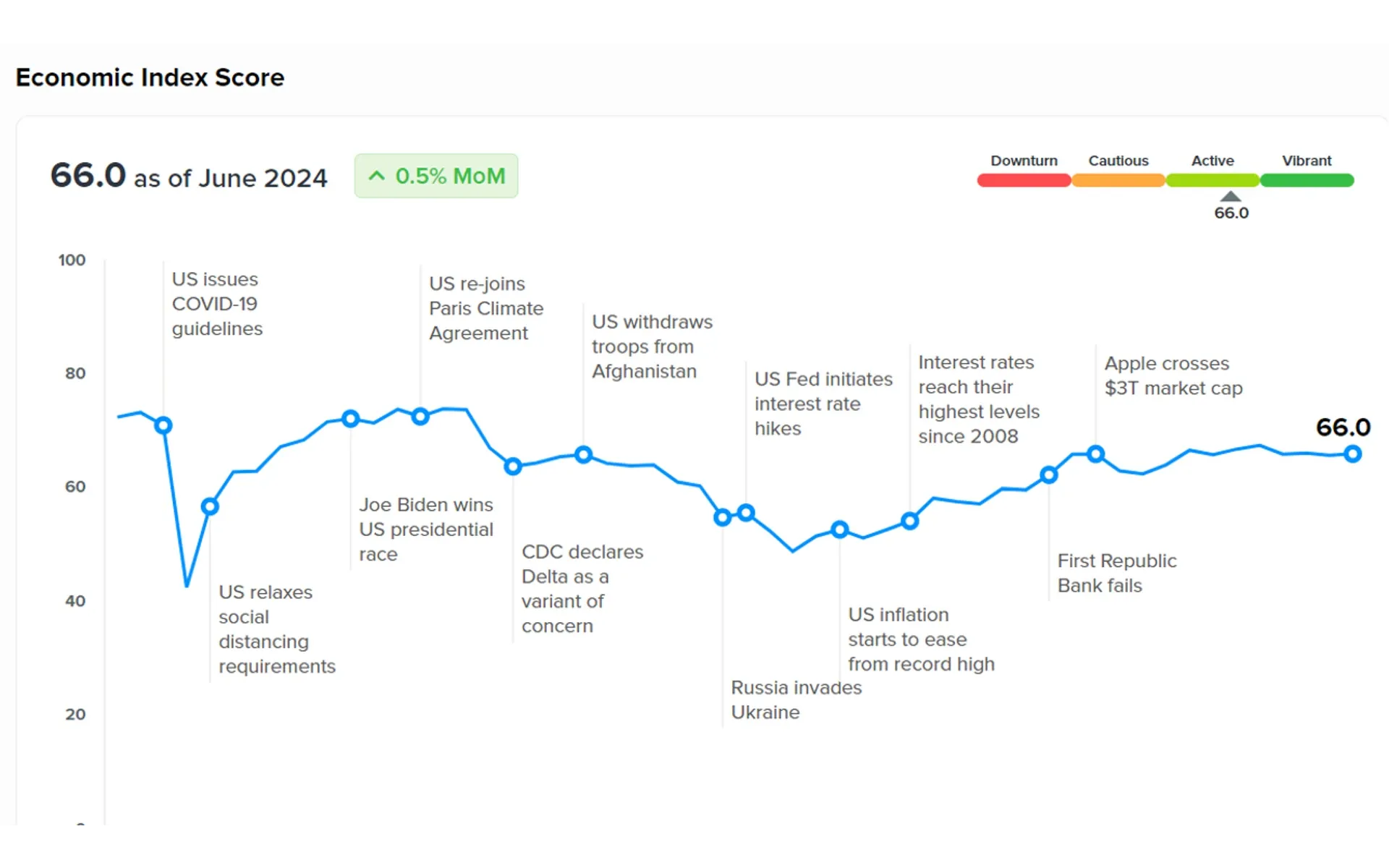Zeta launches AI-powered economic index to track US consumer trends
Zeta Global launched an AI-powered economic index, the ZEI, that tracks US consumer trends to measure economic health and stability.

Zeta Global yesterday unveiled the Zeta Economic Index (ZEI). This novel index leverages artificial intelligence and consumer behavior data to provide a real-time snapshot of the US economy.
The ZEI is built upon Zeta’s proprietary data infrastructure, including:
- Identity graph: Encompassing over 240 million US adults.
- Intelligence graph: Analyzing trillions of behavioral signals across various aspects including digital activity, transactions, and environmental factors.
- Generative AI: Utilizing AI to synthesize real-time insights and generate index scores for eight key economic sectors: automotive, dining, entertainment, finance, healthcare, retail, technology, and travel.
What Does the Zeta Economic Index Measure?
The ZEI is comprised of two main indices:
- Economic Index Score: This score reflects the current health of the US economy based on consumer activities (both online and offline) and is influenced by Zeta’s AI technology. A higher score indicates a stronger US economy with a positive outlook.
- Economic Stability Index: This predictive score, measured quarterly, assesses the US population’s ability to weather economic downturns. A high and rising score suggests a growing segment of the population is financially prepared for economic fluctuations.
June 2024 Zeta Economic Index Results
Despite ongoing global and domestic uncertainties, the June 2024 ZEI results indicate stability and resilience in the US economy. Key findings include:
- The Economic Index Score rose 0.5% month-over-month to 66.0, categorized as “Active.”
- The Economic Stability Index increased by 0.3% to 66.1 over the previous quarter, categorized as “Stable.”
Impact and Future Implications
The ZEI offers a unique perspective on the US economy by directly analyzing consumer behavior. This approach could potentially complement traditional economic indicators, providing valuable insights for businesses and policymakers.

